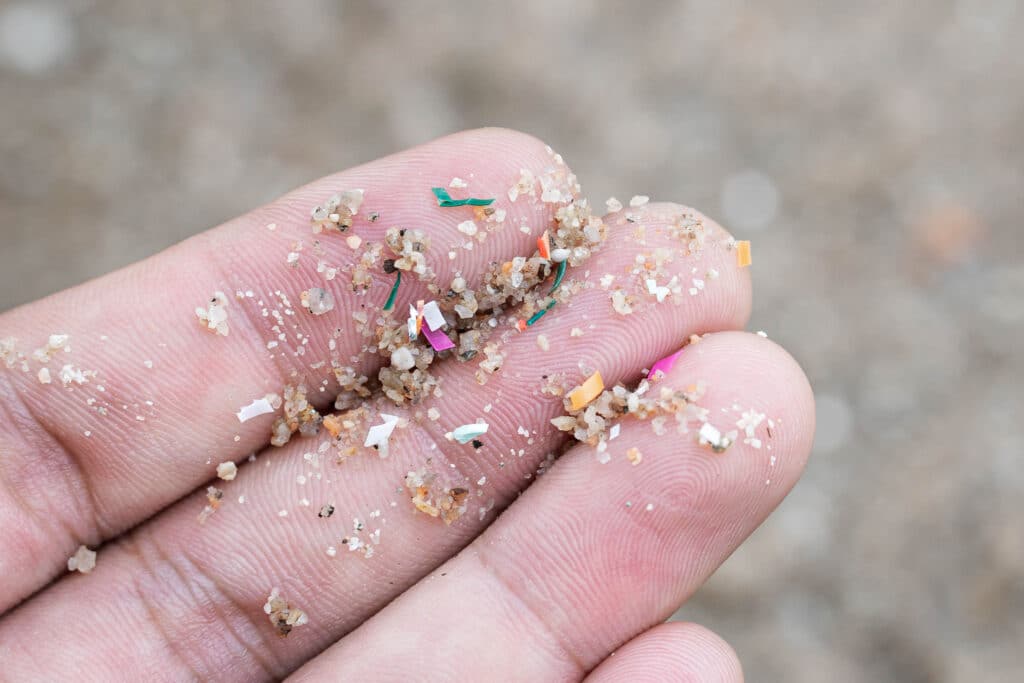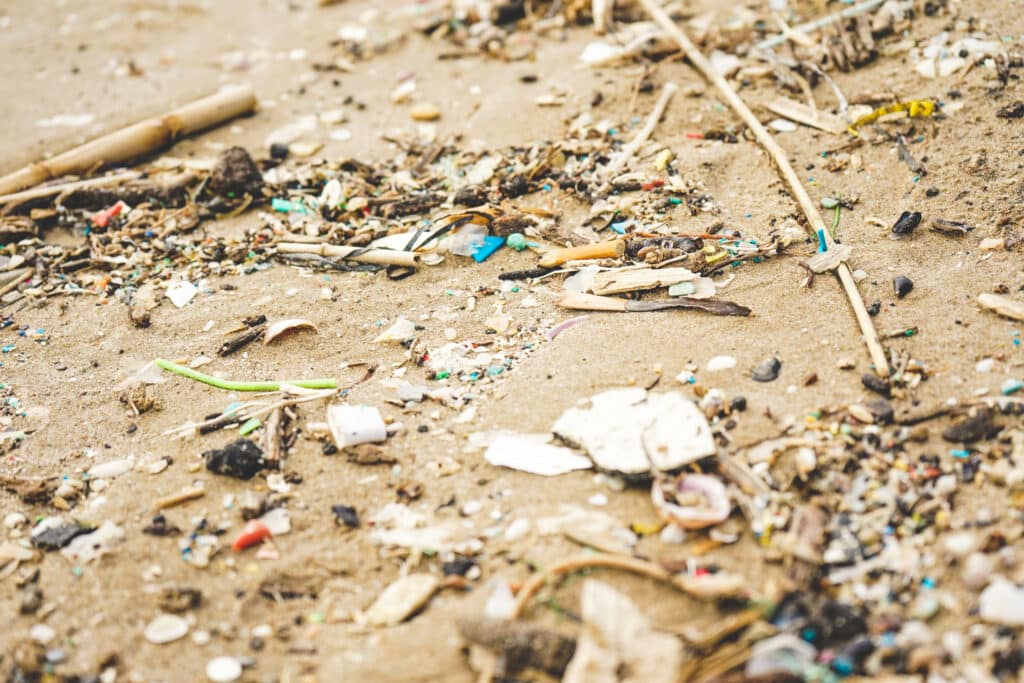Among the various environmental problems facing our world, the concept of “microplastics” has emerged as a prevalent and urgent challenge. Additionally, as microplastics penetrate various ecosystems—ranging from the oceans and soil to the food chain itself—the scale of their impact is increasingly alarming. Today, let’s focus on the most significant issues and recent developments related to the ongoing fight against microplastics.

What are Microplastics?
Microplastics, defined by their size, usually less than 5 millimeters, are a significant problem. These particles can either result from the breakdown of larger plastics over time or be intentionally small, like the microbeads found in personal care products. Microplastics can also come in various shapes, from spheres to fibers. Today, their presence is everywhere. You may also come across the term nanoplastics, which refers to particles defined by an even smaller size of around 1 to 1000 nanometres. However, the difference in these definitions is not relevant for general education. Both are part of our environment today, and we should not ignore them because they are probably here to stay.
Revealing the Problems
Alarmingly, people are already exposed to these particles through food, water, and even inhalation. Recently, groundbreaking discoveries have brought a new dimension to the severity of the problem. Microplastic contamination in human blood has been identified for the first time, with nearly 80% of people showing traces of microplastics. This underlines the pervasiveness of microplastics and raises concerns about their ability to penetrate the body and settle in organs.
Microplastics have been found on the outer membranes of red blood cells, which can interfere with their function. In addition, microplastics could act as vehicles that carry toxic chemicals and pathogens into tissues and cells. The presence of microplastics in the placentas of pregnant women and their rapid travelling through the organs of developing fetuses further raises warnings. Scientists suspect that ingested microplastics may also affect the large and small intestines, inducing cell death, inflammation, and decreasing immune response. Similar physiological problems occur in animals and plants. One such issue comes from organisms ingesting many such particles without any nutritional value and thus become malnourished.
Potential harm is also emerging from research in Japan that confirms the presence of microplastics in clouds. Water samples from clouds containing microplastics suggest that they may be affecting the climate in ways not fully understood.

Refork’s Commitment
In the face of this escalating crisis, we at Refork are confronting this reality. Our commitment is to produce fully microplastic-free and biodegradable cutlery, straws, and toothbrushes. By offering alternatives that break down without leaving harmful residues behind, we want to contribute to an environment with fewer microplastics endangering all living things.
What Can You Do to Protect Yourself?
Individuals play a vital role in tackling microplastic pollution and promoting a sustainable future. Choose biodegradable alternatives like Refork products to reduce the demand for traditional plastics. Recycle responsibly, through following local guidelines and sorting recyclable from non-recyclable materials. Minimize dependence on single-use plastics. Do so by choosing reusable alternatives, helping reduce plastic pollution’s overall impact. Try to educate yourself about new scientific developments, so that you can avoid microplastics as much as possible.
Conclusion
The crisis caused by microplastics requires a multifaceted and collective response. With its commitment to sustainable solutions, Refork exemplifies the dedication needed for all sectors of society. By understanding the severity of the problem and choosing environmentally friendly alternatives, individuals become integral agents of change in preserving the planet for current and future generations.